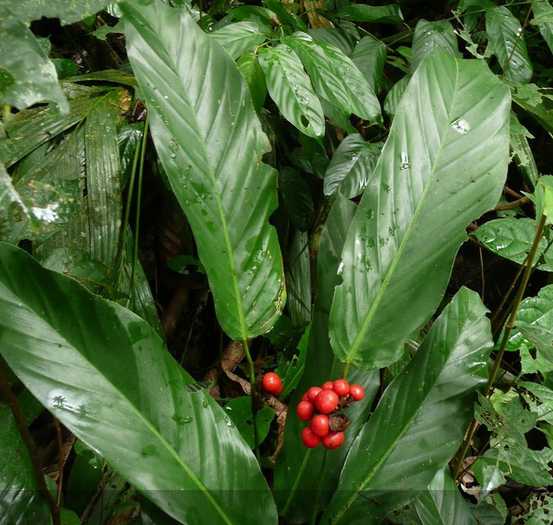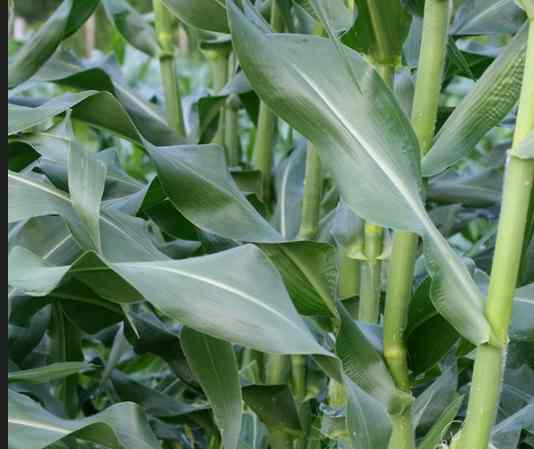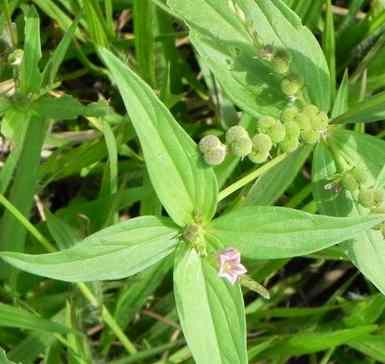
support@yorubalibrary.com
+2348073529208, 07038599574

Ewe Igbodogi, known in English as the Sweet Prayer Plant and botanically as Megaphrynium macrostachyum, is a well-known plant in Yoruba traditional medicine and daily life. The large, broad leaves are commonly used in Yoruba land for wrapping traditional foods like ofada rice, moi-moi, and other local delicacies, but beyond its culinary use, it is also a powerful medicinal and spiritual plant.
In Yoruba herbal medicine, Igbodogi is valued for its anti-inflammatory, wound-healing, and fever-reducing properties. Spiritually, it is believed to possess cleansing and protective powers, making it important in several traditional rites.
Key Facts
Category: Leaf
Botanical Name: Megaphrynium Macrostachyum
Common Name: Sweet Prayer Plant
Yoruba name: Ewe Igbodogi
Igbo Name: Nil
Hausa Name: Nil
Health Benefits
1. Treats Wounds and Skin Infections
The leaves are crushed and applied to cuts, burns, and skin infections to speed up healing and reduce inflammation.
2. Reduces Fever and Body Heat
Decoctions made from Ewe Igbodogi are taken to cool the body, reduce fever, and relieve heat rashes.
3. Relieves Body Pain and Swellings
Poultices from the leaves are used on swollen or painful areas to ease discomfort and reduce swelling.
4. Improves Stomach Health
Some Yoruba herbalists prepare mild herbal drinks from Igbodogi to calm stomach irritation and aid digestion.
5. Used in Food Preservation and Safe Wrapping
The antimicrobial property of the leaves helps preserve food naturally and prevent contamination when used for wrapping.
6. Soothes Rheumatic and Joint Pains
When warmed and tied to affected areas, the leaves relieve muscle and joint pains.
Want to treat common ailments such as Malaria, Cough, Measles, Typhoid, Pile etc naturally without spending much? Grab a copy of Authentic Herbal Solutions: 15 Common Ailments & Their Natural Cures. A practical eBook recommended for everyone regardless of tribe, religion or association. Order below or Download sample here
AUTHENTIC HERBAL SOLUTION #4KOne Yoruba proverb says "Bí olóde ò kú, òde rè kì í wu Gbégi". Do you know that Gbégi is actually a leaf/plant? Get Yoruba Proverbs on Plants and Herbs, which is a collection of Untold Wisdoms Hidden in Leaf and plants comprising their Life Applications & Moral Teachings. Order below or download sample here
YORUBA PROVERBS ON PLANTS #4KSpiritual Use
1. Cleansing Bad Luck and Negative Energy
Ewe Igbodogi is used in herbal baths to wash away spiritual blockages and bad luck.
2. Protection Against Evil Spirits
The leaves are sometimes kept in homes or used in charms for protection against witchcraft and spiritual attacks.
3. Peace and Harmony in the Home
Baths or sprinkling rituals with Igbodogi water are believed to restore peace and love within families.
4. Used in Ancestral and Traditional Rites
Because of its sacred nature, the leaf is used in Yoruba rituals for offerings, prayers, and communication with ancestors.
5. Fortification for Travelers and Hunters
Some herbalists prepare spiritual baths with Igbodogi for people who travel often or hunters to keep them safe from harm.
Characteristics
⦁ Physical Appearance –
Ewe Igbodogi has broad, green, glossy leaves with strong midribs, similar to banana leaves but thinner.
⦁ Taste and Smell –
Mild grassy taste; fresh, pleasant leafy smell when crushed.
⦁ Growth Pattern –
Commonly found in forests, riverbanks, and farmlands, thriving in moist soil.
Functions
⦁ Traditional Medicine –
Wound healing, fever reduction, pain relief, and stomach treatment.
⦁ Food Wrapping –
Used to wrap and preserve traditional Yoruba foods.
⦁ Spiritual Cleansing and Protection –
Removes bad luck, offers protection, and restores peace.
Conclusion
Ewe Igbodogi, the Yoruba Sweet Prayer Plant (Megaphrynium macrostachyum), is more than just a food-wrapping leaf. It is a medicinal and spiritual powerhouse valued for its wound-healing, fever-reducing, and anti-inflammatory properties, as well as its ability to cleanse negative energy and protect against spiritual attacks.
Have you heard of our Yoruba Herb Dictionary? This contains names of Yoruba Leaf, Roots, Barks, Characteristics, Properties & Identification with HD Pictures. Order below or download sample here
A-Z HERBS & LEAF DICTIONARY #4K
Know more about the Yoruba traditional uses and he…

Learn about Ewe Aran, a potent Yoruba medicinal le…